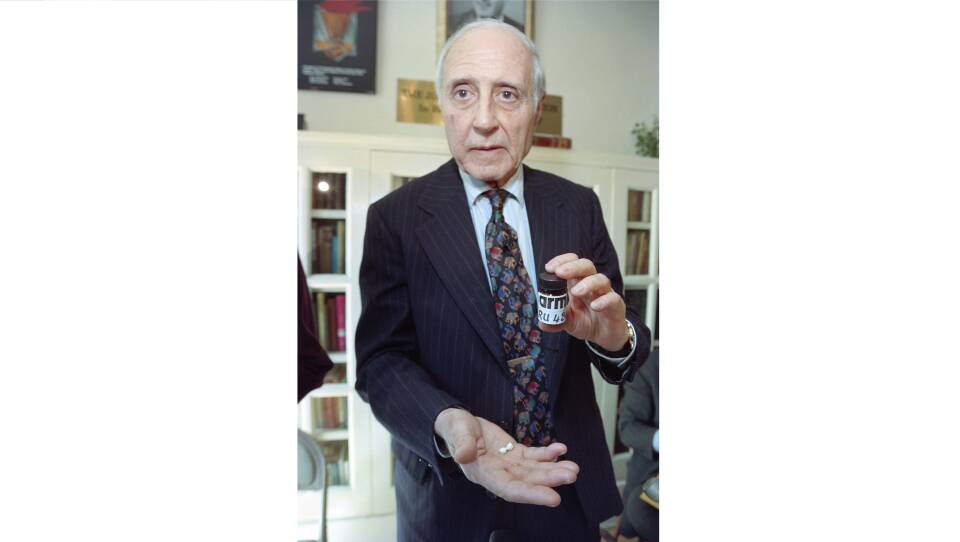It’s a tale suited for a heist film: A pregnant punk from the Bay Area and an activist board a plane from London to New York, carrying abortion pills that were banned in the U.S. They’re stopped at customs and officials confiscate all their pills — or so they think.
The true story of Lawrence Lader, a prominent abortion rights activist who helped pave the way for medication abortion in the U.S., is now the subject of a new podcast called “Cover Up: The Pill Plot” by host and reporter T. J. Raphael.
Raphael, who had worked on WNYC’s nationally syndicated daily news program The Takeaway and for the Slate Podcast Network, said she knew she wanted her next project to focus on abortion on the day the Supreme Court released its opinion in Dobbs v. Jackson, overturning Roe v. Wade. What she found, she said, sounded like “it was ripped out of an 'Ocean's Eleven' flick.”
“It's something that I can't believe hasn't been covered more widely,” she said.
Raphael found much of the material for the podcast in Massachusetts, at Lader’s archives at Smith College.
“When I first started looking into the story, I had seen traces of it online and in old newspapers,” she said on GBH's Morning Edition. “In his files, there were tons of huge boxes, I was able to find original court documents and correspondence between Larry and other activists establishing the blueprint for this plot.”
What she found was the story of Leona Benton, a 29-year-old self-described anarchist and West Coast punk from the Bay Area. In 1992 she was pregnant, and with abortion rights activist Lawrence Lader, flew from San Francisco to New York, then to London, to obtain mifepristone.
Mifepristone had been available in Europe since 1988, but it was illegal in the U.S. because of a ban put into place by President George H.W. Bush, Raphael said.
“Larry's idea was to find a pregnant woman, get her prescription for the medication, fly to London, where the pill was legal, bring it back to New York, and then intentionally be stopped by U.S. Customs and have the pills confiscated at JFK Airport,” Raphael said. “Benton's case went all the way to the Supreme Court. I don't think a lot of people realize that an abortion pill case has already gone before the Supreme Court, it was just back in 1992.”
Benton eventually lost her Supreme Court case, and had a surgical abortion instead. But unbeknownst to the federal authorities, Lader had managed to sneak another dose of mifepristone into the country.
“We don't know how he did it,” Raphael said. “I asked his lawyer, I asked Leona Benton's lawyer at the Center for Reproductive Law and Policy. But he was able to keep an extra dose and he secretly built a lab in Westchester County in New York to replicate the abortion pill and make a proven American copy. I was able to find the location of this lab, and was the first journalist to do so, from the archives at Smith College.”
The FDA eventually approved mifepristone for abortions in 2000. It’s been used ever since, though a federal judge in Texas said its approval should be revoked in April. The medication is still available in states where abortion is legal.
The pill made in Lader’s lab, replicated from the one he snuck into the U.S., ended up paving the way for clinical trials here, Raphael said.
Raphael said working on the podcast helped her appreciate the power of activism.
“I think a lot of people, women and other people who can get pregnant, have felt pretty defeated after the Dobbs decision,” she said. “A lot of people have felt like their fundamental human rights are being taken away. And I think what this story shows is that it might take a long time, but if you have that conviction that you have that passion, you can keep going and really change the world.”









